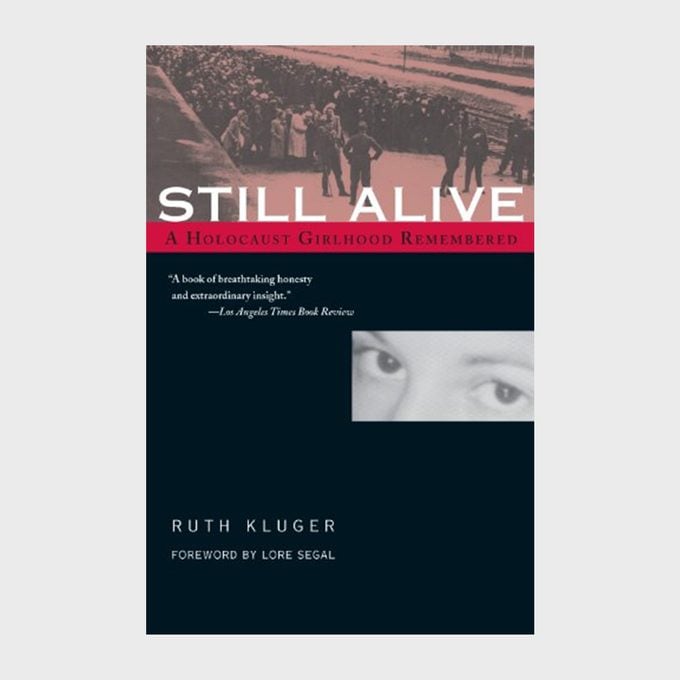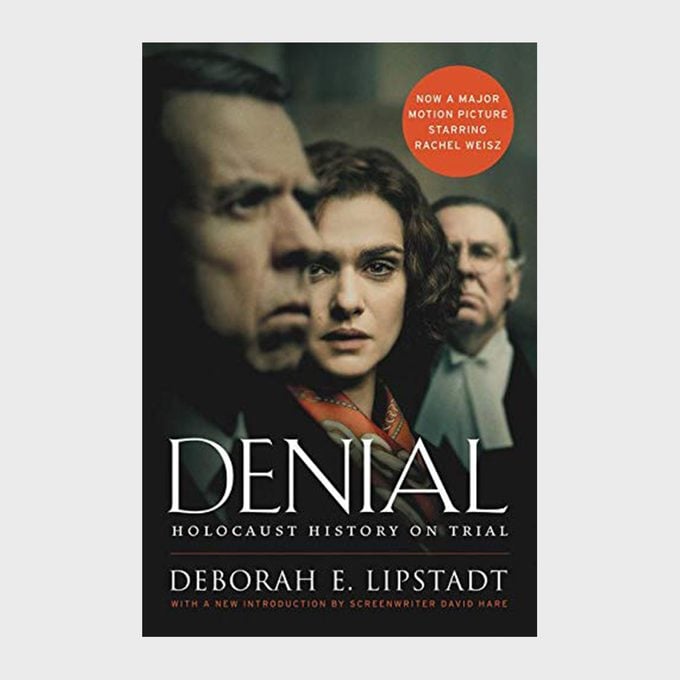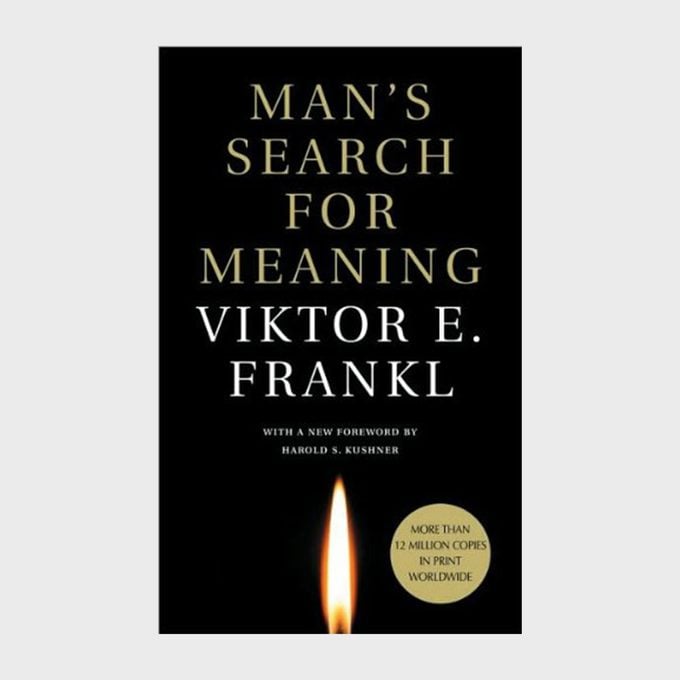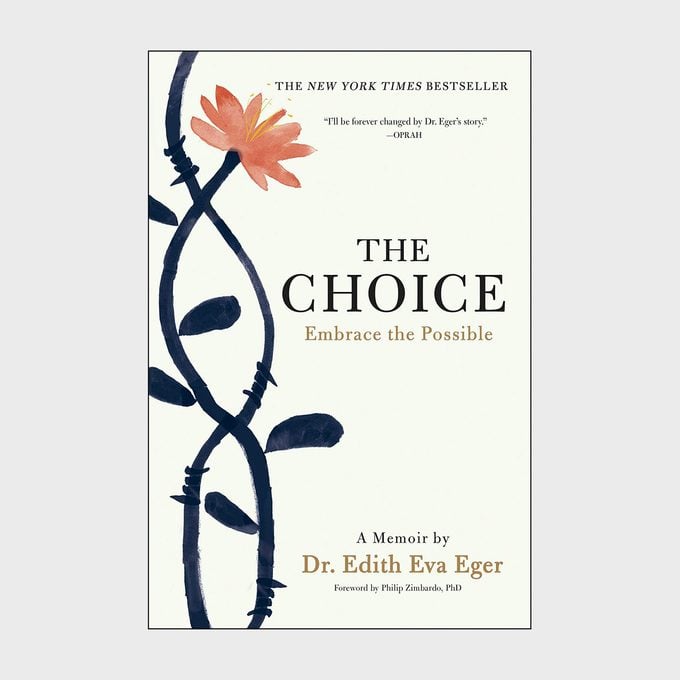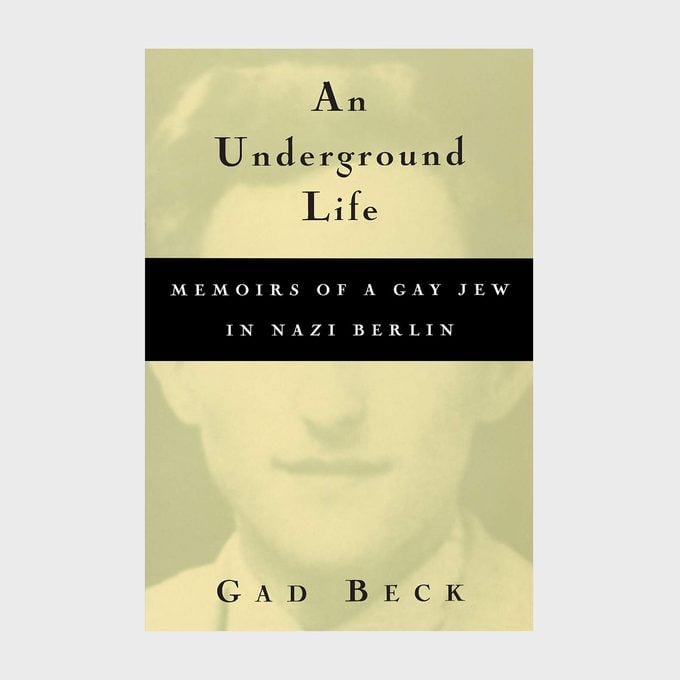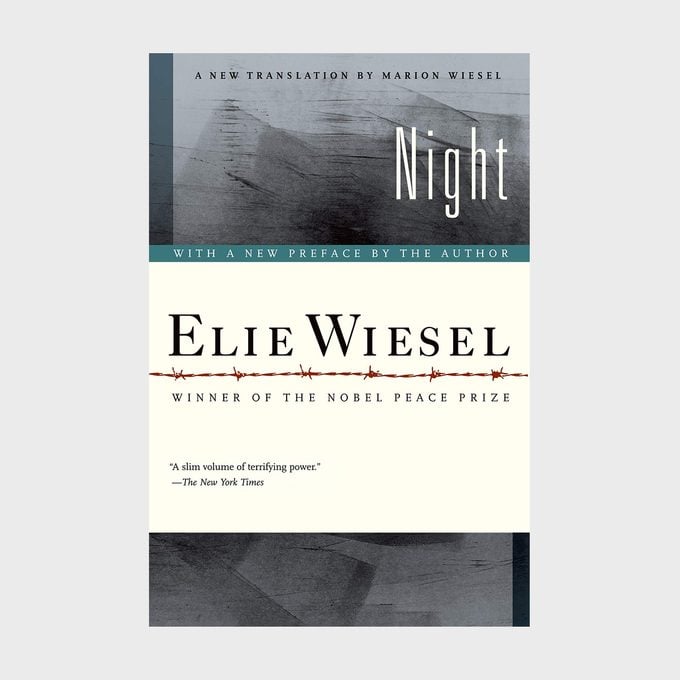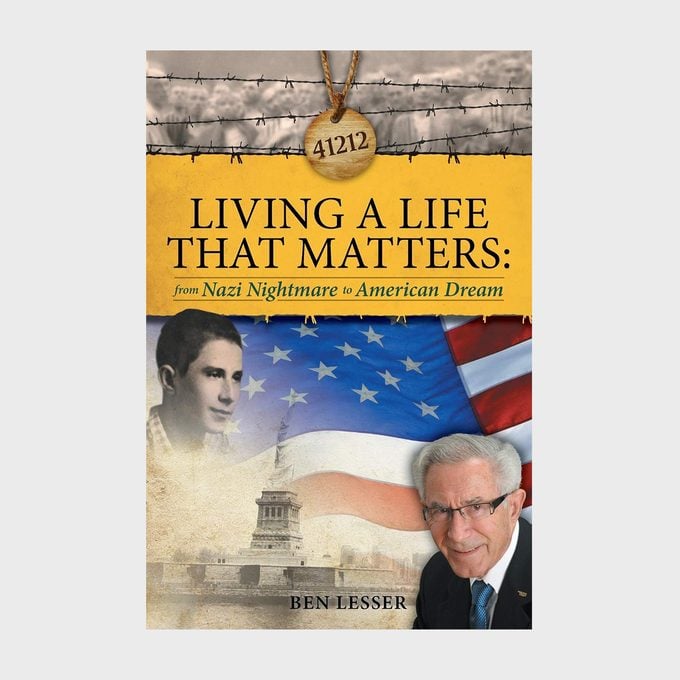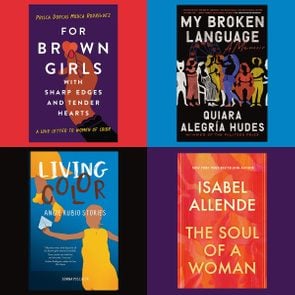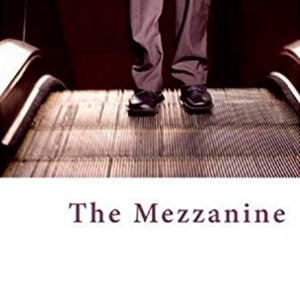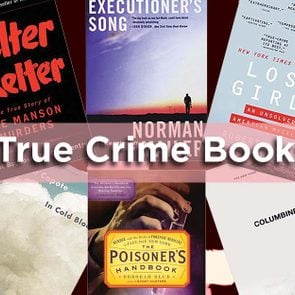12 Holocaust Books That Everyone Should Read
Updated: Feb. 01, 2024
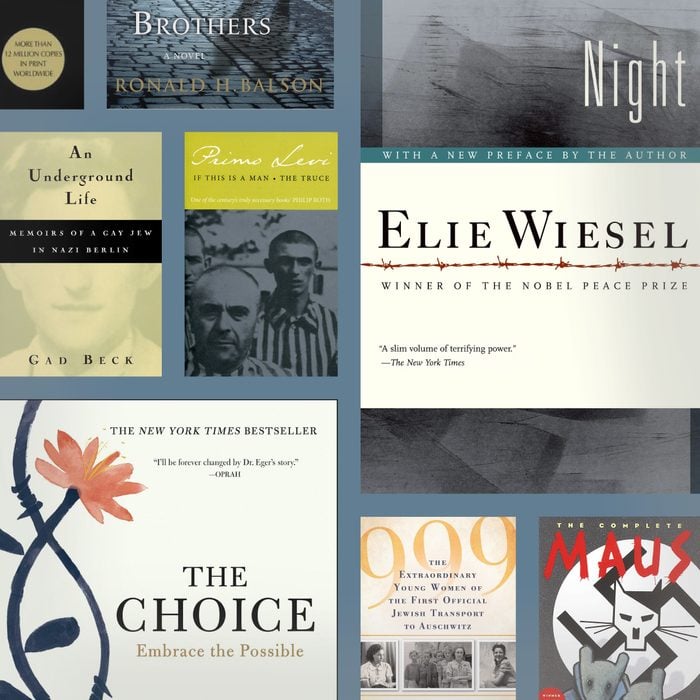
With the disturbing increase of anti-Semitism globally and a wave of Holocaust denial and whitewashing, it's important to know and understand the truth of the Holocaust, which is where these must-read books come in.
The Holocaust, also referred to as the Shoah (the Hebrew word for catastrophe), will always be known as one of the darkest periods of humanity. Between 1933 and 1945, the German Nazis and their willing collaborators orchestrated and carried out the mass murder of six million European Jews during World War II. The Nazis also systematically persecuted, incarcerated in labor and concentration camps, and murdered millions of other so-called undesirables, including the Romani, homosexuals, and political dissidents. Because the news at the time was heavily censored, it was only years later that people were able to pick up Holocaust books to learn about the horrors and the extent of the loss of human life.
For many people, the Holocaust is past history, revisited only on significant anniversaries or when the headlines make it unavoidable. For other people, stories of the Holocaust impact their day-to-day lives as they share memories with younger relatives or students. As the child and grandchild of Holocaust survivors, it has become one of my missions to combat Holocaust denial. That’s why I work with many Holocaust survivors and help educate others about the true horrors of that time and how to recognize Holocaust denial or whitewashing. One of the most important things you can do is to read the facts from reputable sources, and that includes choosing the most highly recommended Holocaust books, some of which are listed below.
To help compile this list, we asked prominent individuals, educators, activists, and organizations dedicated to Holocaust education and awareness to weigh in with their top picks for Holocaust books. And if you’re trying to brush up on your reading in general, we’ve also gathered lists of the best books of all time, best autobiographies, best nonfiction books for kids, best biographies, books about racism, and historical fiction.
Join the free Reader’s Digest Book Club for great reads, monthly discussions, author Q&As and a community of book lovers.
Nonfiction Holocaust Books
Works of fiction are entertaining, but to truly understand the Holocaust, nonfiction tomes are your best bet—especially those written by Holocaust survivors who live with the history every day.
1. If This Is a Man by Primo Levi
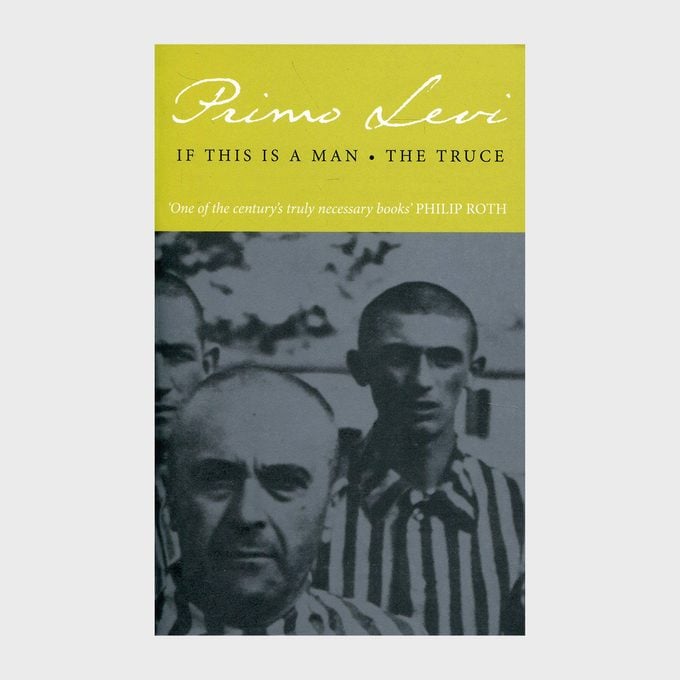
In 1947, Italian chemist Primo Levi published one of the most well-known Holocaust survivor books of all time: his account of surviving a year in the Auschwitz concentration camp. From the logical mind of a scientist comes a history of the impossible-to-understand events of the Holocaust. Deborah E. Lipstadt, the acclaimed historian, author, and professor of Holocaust studies who was nominated by President Biden as U.S. Special Envoy to Monitor and Combat Anti-Semitism, says it’s hard to pick just a few great Holocaust books “when there are so many powerful ones,” but she recommends Levi’s, calling it a “powerful memoir.”
2. Still Alive: A Holocaust Girlhood Remembered by Ruth Kluger
Another of Lipstadt’s recommendations, Ruth Kluger’s 2001 memoir tells the story of her and her mother’s deportation to a series of concentration camps, beginning at age 11 with Theresienstadt. It’s an unflinching view of the Holocaust from both the perspective of a child going through the experience and an adult trying to make sense of her past. “These are two great books,” says Lipstadt of Kluger’s and Primo Levi’s memoirs. “I teach them a lot. One’s a classic; the other should be.”
3. Denial: Holocaust History on Trial by Deborah E. Lipstadt
In her 1993 book, Denying the Holocaust, Lipstadt took on a Holocaust denier she called “one of the most dangerous spokespersons for Holocaust denial.” After her book was published in the United Kingdom, she was sued by the denier. Denial: Holocaust History on Trial, published in 2016, presents a riveting and detailed look into her exhaustive legal battle, which resulted in a formal denunciation of a Holocaust denier. You may recognize the story from the Rachel Weisz film Denial, a movie adaptation of Lipstadt’s book.
4. Man’s Search for Meaning by Viktor E. Frankl
Viktor E. Frankl’s memoir of his experiences in Nazi death camps—including Auschwitz—from 1942 to 1945 describes his attempts to hold on to his humanity and find hope, even during the most horrific moments of his life. Though it was published in 1946, Frankl’s memoir remains a major influence to many. “I’ve never read anything like it. It was visceral and extremely poignant,” says McKay Smith, an attorney with the Department of Justice, law professor, and former staffer for Senator John McCain.
Smith has been heavily influenced by his late grandfather’s experiences in occupied France during World War II and the way he was haunted by atrocities he’d seen committed by the Nazis. But while all Holocaust stories are naturally steeped in sadness, Smith points to the sliver of hope that Man’s Search for Meaning offers. “Portions of the book almost took me to my knees,” he says. “Yet there was a seedling of hope there. Something to hang on to. A valuable lesson to be learned for all of human life.”
5. The Choice: Embrace the Possible by Edith Eva Eger
Written by a respected psychologist and taking a different approach to trauma than other Holocaust books, Edith Eva Eger’s 2017 memoir tackles her struggle for survival in Auschwitz and, years later, her healing from the trauma she endured. Simonne Beckeld Hirschhorn, program director of Club Nissim, a recreational day program for Holocaust survivors, says she was struck by Eger’s ability to find choices in life and to come up with a different treatment for post-traumatic stress disorder. Hirschhorn, who spends nearly every day with Holocaust survivors, says this book stays with her and inspires her daily.
6. An Underground Life: Memoirs of a Gay Jew in Nazi Berlin by Gad Beck
While there are many incredible stories of heroism during the Holocaust, there aren’t many from an LGBTQ+ perspective. Gad Beck’s 1999 memoir is a must-read, says Yuval David, the queer grandchild of Holocaust survivors, who advocates for both communities. He teaches Jewish and queer audiences (and other minority communities) how to embrace who they are and how to combat Holocaust whitewashing and misinformation. David recommends this moving portrait of a gay teenage leader in the resistance. “Gad Beck was one of the very last gay Jewish Holocaust survivors,” he says. “He was born in Berlin and came of age during Nazi rule. He used his connections in the gay underground movement to help other Jews hide and escape during the Holocaust.”
7. Night by Elie Wiesel
An issue that is not often touched upon in Holocaust stories is the notion of survivor’s guilt, a topic Elie Wiesel delves into in one of the most well-known Holocaust memoirs. When asked about the best Holocaust books for teens, curators at Yad Vashem (the World Holocaust Remembrance Center) pointed to Wiesel’s 1960 account of surviving Nazi death camps as a teenager. The museum even incorporates the book in its Echoes and Reflections unit, which provides educators with resources to teach about the Holocaust.
8. 999: The Extraordinary Young Women of the First Official Jewish Transport to Auschwitz by Heather Dune Macadam
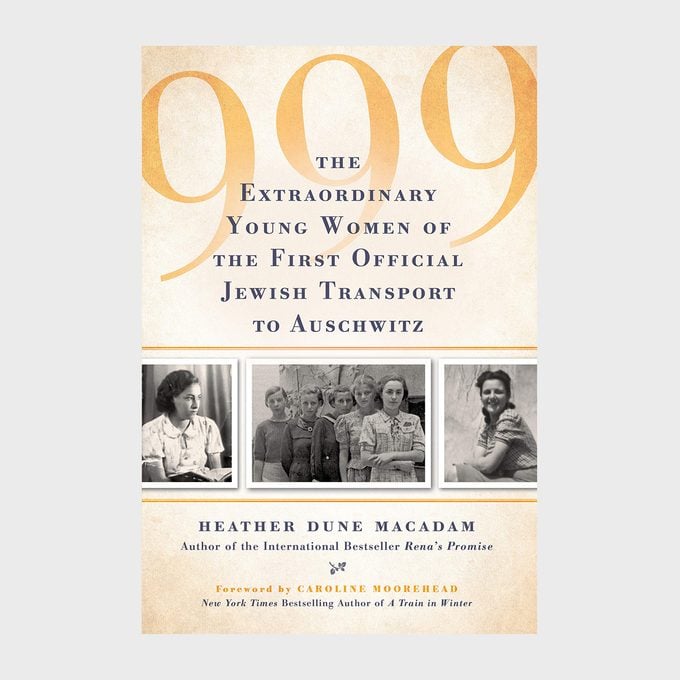
A finalist for the Pen America Literary Award for biographies, Heather Dune Macadam’s Holocaust book chronicles the previously untold story of the 999 young, unmarried Jewish women who, on March 25, 1942, were tricked into boarding the train that became the first official transport to Auschwitz. As part of her painstaking research for the book, Dune Macadam personally met and interviewed the survivors whose tales she tells in this story. The book was published in 2019, a full 74 years after the Holocaust ended. Part of the reason this story took so long to be revealed, Dune Macadam tells me, is that tales of teen girls weren’t considered important enough to highlight.
9. Living a Life That Matters: From Nazi Nightmare to American Dream by Ben Lesser
Many Holocaust books concentrate on events that occurred during the war, but in his memoir, Ben Lesser highlights his liberation and the aftermath of the Holocaust. The 93-year-old Holocaust survivor doesn’t just want to tell his story, though; he aims to educate others and make sure the world never forgets what happened during this most horrific time. “History that is not taught is history that is repeated,” he says. “Holocaust education is a great way to help defeat racism, discrimination, and bullying.”
This 2012 memoir is a good place to start, and you can supplement your reading with the educational curriculum from the Zachor Holocaust Remembrance Foundation, which Lesser founded. It’s a great way for younger people to understand the full horrors of the Holocaust and the importance of anti-racism. “Sadly, there are not many survivors left to tell their story,” Lesser says. “That is why it is imperative that the information students learn is factual. When we educate, we prevent and ultimately prevail.”
Fiction Holocaust Books
Before reading any novels about the Holocaust, remember that they may not be factually accurate. In fact, Dune Macadam says there are “huge inaccuracies” in many popular fiction books about the Holocaust. It’s important to do your own research before believing that the histories shared in novels are true.
10. Once We Were Brothers by Ronald H. Balson
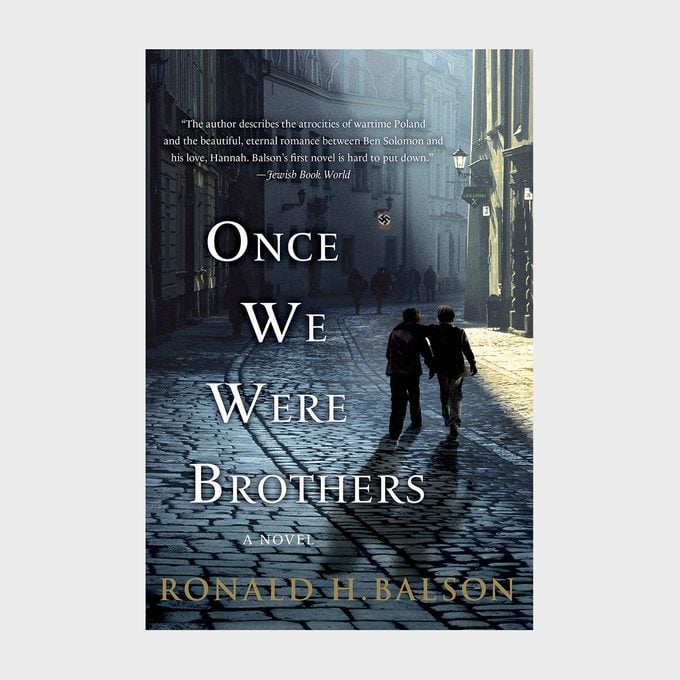
In this compelling legal thriller, published in 2013, a well-respected philanthropist is accused of having been a former Nazi SS officer. The charges are bunk—or are they? The compelling tale pits two former friends against each other in a fight for truth and redemption. Danielle Praport, a former Young Friends Member of the Museum of Jewish Heritage, recommends this extremely readable story, which is the first in a series.
11. The Complete Maus by Art Spiegelman
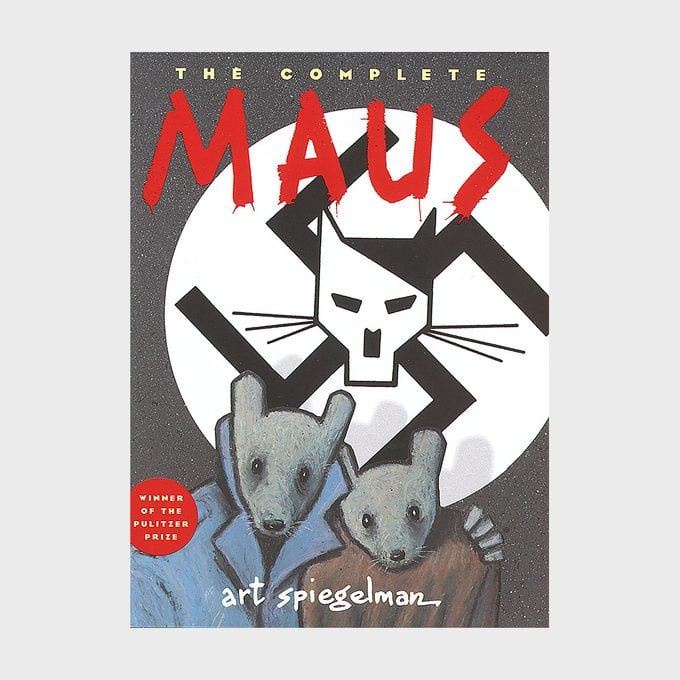
Many people use this graphic novel as a way of telling children about the Holocaust. The anthropomorphic cats and mice represent the Nazis and Jews. It’s a harrowing way to soften the story of the son of a Holocaust survivor coming to grips with his family history. The book was published in 1991, and the following year it became the first—it’s still the only—graphic novel to claim the prize.
12. Beneath a Scarlet Sky by Mark Sullivan
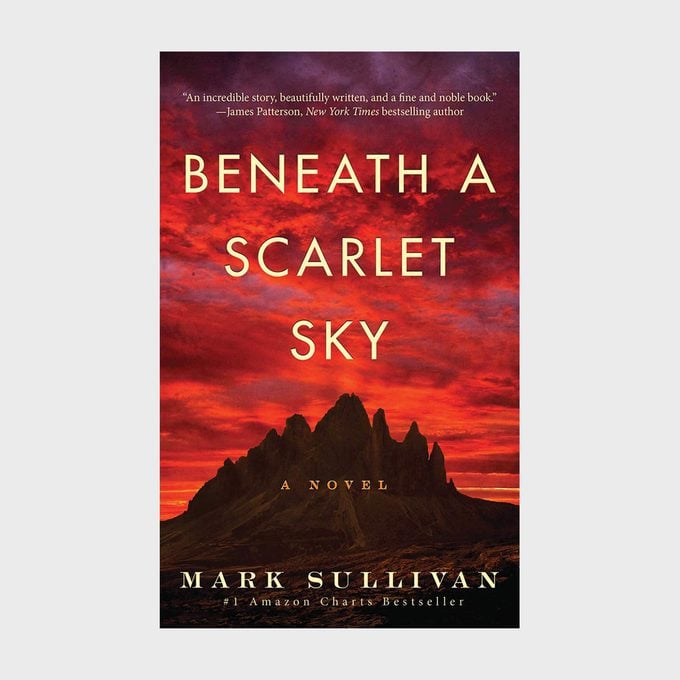
Though I’m not normally a fan of fictional Holocaust books, I couldn’t put down Mark Sullivan’s 2017 novel. It’s based on the true story of Pino Lella, an Italian teenager who helped Jews escape across the Alps. Forced by his parents to join the German army as a way to stay safe, Lella becomes a driver for a member of the German high command and witnesses some of the atrocities of the Holocaust. It’s at turns inspiring, heartbreaking, hopeful, and perfectly ordinary. As far as fiction Holocaust books go, this one is truly worth a read—as its more than 43,000 five-star reviews can attest.
Looking for your next great book? Read four of today’s bestselling novels in the time it takes to read one with Reader’s Digest Select Editions. And be sure to follow the Select Editions page on Facebook!
Sources:
- Deborah E. Lipstadt, historian, author, and professor of modern Jewish history and Holocaust studies at Emory University who was nominated by President Biden as U.S. Special Envoy to Monitor and Combat Anti-Semitism
- McKay Smith, an attorney with the Department of Justice and law professor with George Washington University
- Simonne Beckeld Hirschhorn, program director of Club Nissim
- Yuval David, queer grandchild of Holocaust survivors who advocates for both communities
- Yad Vashem: “Echoes & Reflections”
- Zachor Holocaust Remembrance Foundation: “Ben’s A.I. Storyfile”

